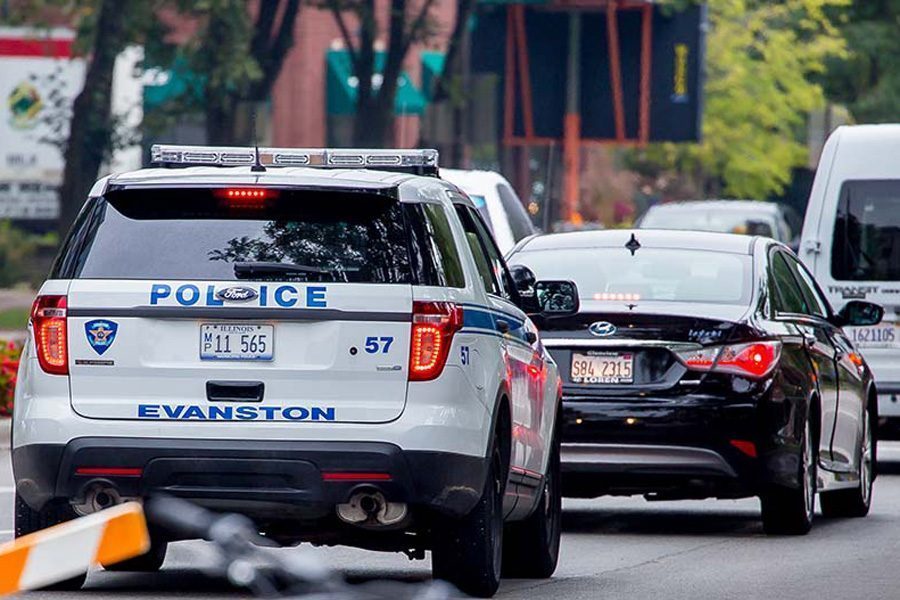Misconduct may be ‘socially transmitted’ across police officers, Northwestern study finds
Daily file photo by Zack Laurence
An Evanston Police Department vehicle. A new Northwestern study suggests police officers can “learn” misconduct from other officers.
August 8, 2019
Exposure to police misconduct within a work network may lead to other officers “learning” the behavior, a Northwestern study suggests.
The study, led by sociology Prof. Andrew Papachristos, is one of the first to analyze police officers’ involvement with other officers in misconduct complaints to determine whether such behavior can be “socially transmitted” across officers.
Researchers examined records of cases involving “use of force” — defined as use of a firearm, use of a conductive energy device, use of unnecessary physical contact or interactions that result in injury or death — and found that police officers who had more colleagues named in use-of-force complaints were more to be the subject of use-of-force complaints themselves.
The results suggest police misconduct can be “transmitted” from officer to officer, Papachristos said in a University news release.
The data used in the study was pulled from the Chicago Police Department, an institution from which four officers were indicted earlier this year for covering up Jason Van Dyke’s murder of teenager Laquan McDonald. Van Dyke’s records show multiple complaints in the years before he shot McDonald, one of which cost the city half a million dollars in a civil lawsuit. Van Dyke was never disciplined following any of his prior complaints.
Papachristos’ research suggests that working alongside officers with a history of misconduct can “lessen officers’ perceptions of the risks associated with engaging in misconduct,” and that appropriately disciplining officers found guilty of misconduct could reduce the risks of the behavior spreading.
“Temporarily removing officers named in complaints of this kind from the field until problematic behaviors are addressed might limit the negative consequences of exposure,” Papachristos said.
Although the scope of the study is limited — it only used data from CPD — researchers recommended that all police departments consider how assigning officers with histories of using excessive force affects their coworkers.
Email: [email protected]
Twitter: @cameron_e_cook


